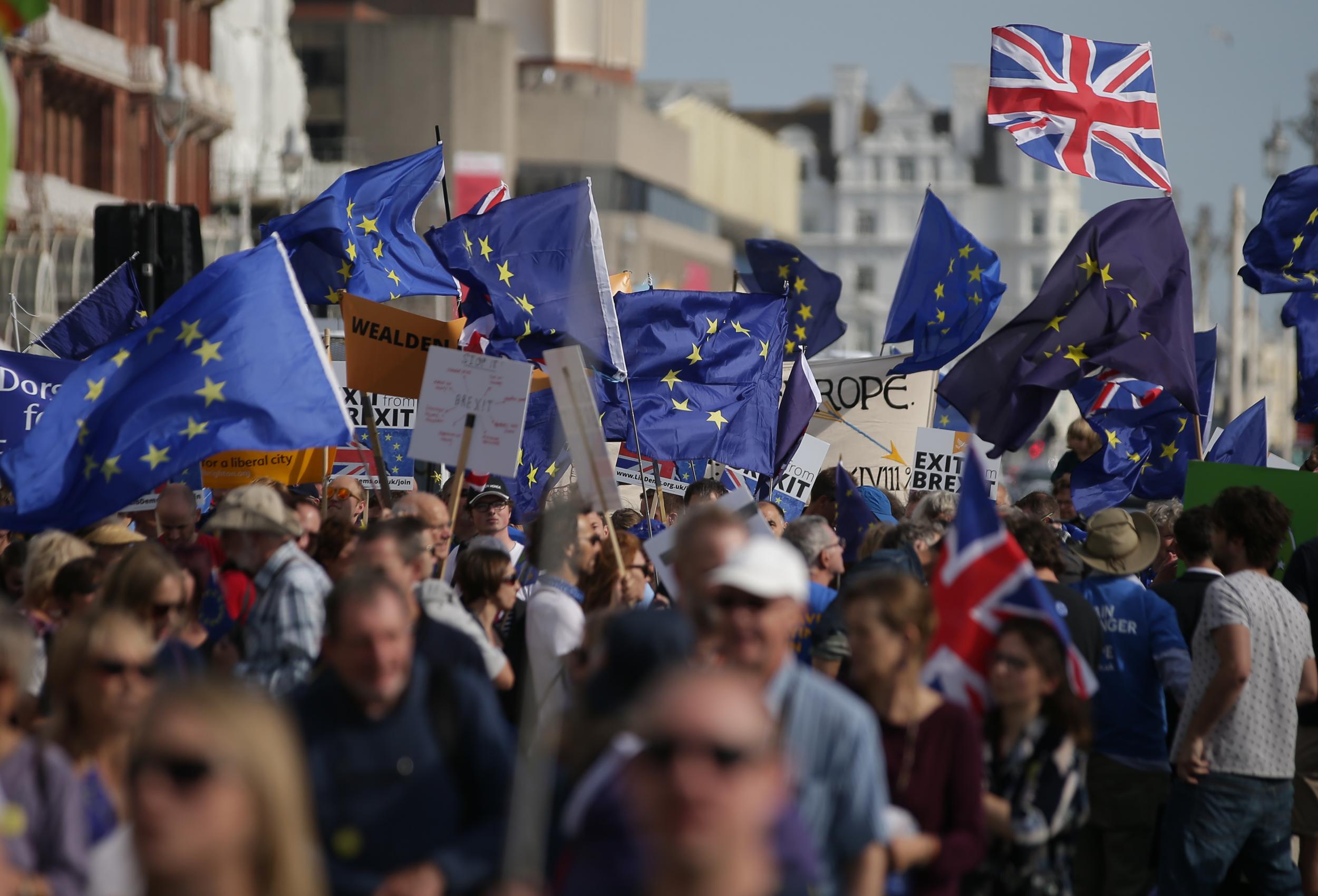By 2030, our relationship with Europe will be repaired – it will be as though Brexit never happened
The key point is that once the argy-bargy with Europe subsides, the pressure will be on politicians to find ways of cooperating better, not to grandstand to their respective domestic audiences


Sometimes it is easier to see what might happen in the future if you look 10 or 20 years ahead, rather than 10 or 20 months. That is because the noise of politics drowns out the long-term economic and social forces that shape the relationship that countries have with each other. Politicians come and go. But economic relationships change much more slowly and societal attitudes shift only slowly too.
So let’s apply this to the UK’s relationship with Europe. We are in the early stages of a bumpy ride, one that will become even more ill-tempered over the next couple of years. Indeed I think the ill-temper will persist long after the UK has officially left the EU. You can see why already, for example by allowing European judges to have a role in the UK even when we are not members. I think it is pretty clear too that the deal that is eventually negotiated – a relationship somewhere between that of Switzerland and Canada – will not be a particularly good one from the perspective of either side. The negotiations will be too political for an optimal deal to be struck.
But now look forward ten or more years, say to 2030. We will be trading with Europe, of course. Some of us will be working there, though the numbers will depend less on the legal set up and more on whether we have the language skills. Europeans will still have jobs in the UK, though there may be more Americans, Canadians and Australians in the skills mix. What will drive jobs will be more the demand for skills and less the politics. Whether our (or indeed European) living standards rise much will depend more on the way technology develops and our ability to apply it rather than decisions of the present crop of politicians, by then long out of office.
Living standards will also depend on the ability of ourselves, and Continental European nations, to cope with the headwinds of demography. The UK will have a relatively young population by European standards, but it will be older than it is now. The fact that we will be relatively young is positive, but it will be vital to figure out better ways of keeping older people in some form of employment. That will be in our own hands, and while at the moment we do well by European standards we do not do well by South Korean or Japanese, or even American.
Will we trade relatively less with Europe and more with the rest of the world? Well, yes, but that shift has been happening long before Brexit, simply because non-EU countries have been growing faster. Exports on present trends would have fallen to about 30 per cent of the total by 2030 – currently they are 43 per cent, or about 40-41 per cent if you allow for the stuff we export to the rest of the world via the huge port in Rotterdam. Maybe that proportion will fall a little faster than it otherwise would, but when it comes to trade big economic forces matter more than politics. It was big economic forces that drew three million Europeans to come to Britain; they did not come for the weather.
The key point here is that once the argy-bargy with Europe subsides, the pressure will be on politicians to find ways of cooperating better, not to grandstand to their respective domestic audiences. Remember too that between now and 2030 there will have been at least one major global recession. We don’t know the timing and we don’t know the magnitude but we can be pretty darned sure it will happen. That will put pressure on governments to mitigate the impact of recession and unless they are totally nuts they won’t try having a trade war.

There is a further twist here. While the UK will have a difficult two or three years as we adjust to some shift in trading arrangements, I think the tensions within the Eurozone will mean that the EU will have a difficult period in the middle 2020s. I personally do not expect the Eurozone to survive with all its present members, though it may be that Germany will be prepared to bail out the weaker members of the bloc once again. My point here is that it is impossible to see the detail, but not so difficult to pick out big themes. The next recession will be very difficult for everyone, but the fact that the UK has control of its currency will enable it to pull through better than most.
The question has always been whether it is better to be just in Europe, technically a member of the EU, but not taking part in its big projects such as the euro. Or whether it is better to be just out, not a member but cooperating closely and warmly on areas of mutual interest, especially trade. The first is much easier in the short-term because it is less disruptive, but maybe leads to more unpleasantness in the long run. The second, which we have of course chosen, is much harder in the short term, but maybe a cleaner and more honest way to work together in the long.
Actually, come 2030 I don’t think our relationship with Europe will turn out to be very so different from what it would have been had we voted to remain.
Join our commenting forum
Join thought-provoking conversations, follow other Independent readers and see their replies
Comments
Bookmark popover
Removed from bookmarks